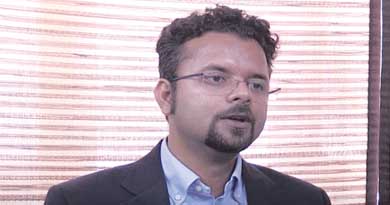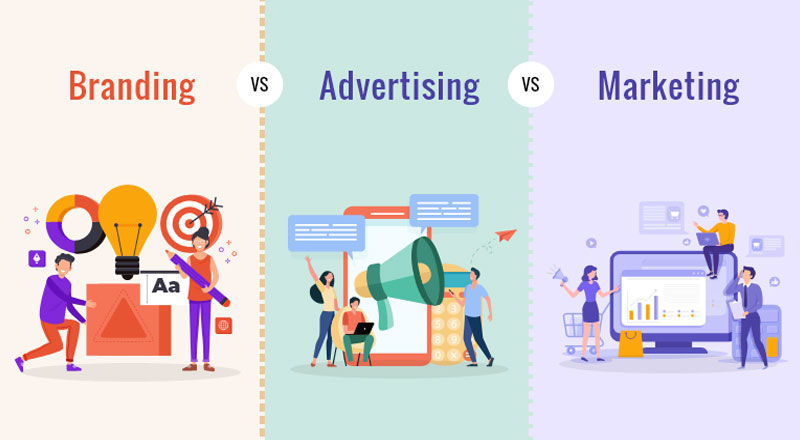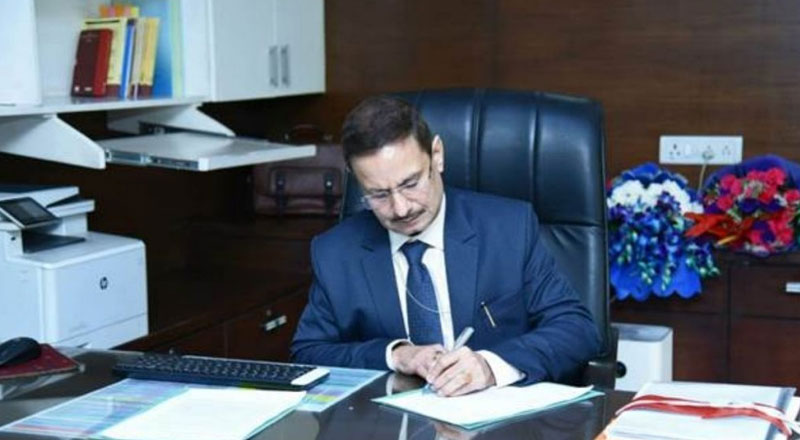Charities Aid Foundation (CAF) India in collaboration with Oracle had last month organised three regional workshops across Delhi, Mumbai and Bangalore to help build the capacity of 71 Oracle-supported NGOs to effectively implement CSR projects. The workshops focused on grant management, financial management, programme implementation cycles, legal compliance, and use of digital media to highlight programme impact.
During a chat with SPOI, Rajendra Tripathi, Senior Manager – Corporate Citizenship – India explains how these workshops help the NGOs and non-profit grantees from diverse areas by bringing them together onto a single platform –
Could you tell us more about these workshops?
Oracle is supporting 71 non-profits working to advance education, protect the environment, and enrich communities in India. This requires us to monitor and support projects across 21 states to effectively drive our corporate citizenship strategy. Regional workshops like these are vital to build the capacities of non-profits so that they can deliver a lasting, positive impact on the ground.
The workshops bring together implementing partners working in diverse areas. The workshops are envisioned as a way to strengthen the working relationships among CAF India, Oracle, and Oracle-supported NGOs and explore how to deliver high-impact CSR projects and programmes that will improve and transform the lives of the marginalised population, help students stay in school and develop valuable skills, and protect the natural world for generations to come. In that spirit, the workshops aim at turning ideas into impact, and objectives into accomplishments, as non-profits are provided a platform to develop mutually agreed upon systems and processes in connection with their Oracle grants.
Can you brief us about the CSR policies and the projects that are going on at Oracle?
Under the aegis of corporate citizenship, Oracle has 3 categorical pillars – education, where our mission is to advance education wherever we are present as a business entity. In India we have a total of 40 projects in education spanning across regions and the idea is to work across several beneficiaries in the system, which means we work with schools, teachers, students to advance STEM (Science, Technology, Engineering, Math) abilities. We also work with organizations which encourage and promote lifelong leaning with regards to having books and promoting reading as a habit. We also work with organizations that provide scholarships to unserved bright kids from underprivileged backgrounds.
The second categorical pillar is environment in which our mission is to protect and preserve it through different projects which we have undertaken. We have a total of 15 projects that are centred on the environmental citizenship pillar. We are a part of the Big Cats Initiative with WWF, in which we safeguard the corridors and critical habitats of different big cat species and is one of the larger projects for us. We are involved with another project with Wildlife Trust of India in Chhattisgarh where we protect the endangered Asiatic buffaloes and preserve their environment. We also work on global climate change and global warming.
The third pillar is the community, where our idea is to strengthen the communities wherever we are working. We are working in projects with differently-abled people by helping them find employment and enhancing their approach for making themselves fit in the society. So we have got close to 50 projects in the community space. The whole idea is to work with non-profit organizations, understand the key areas and the priorities where help is required for India as a country and have the complete purpose of CSR fit into different sections of the society.
What best practices does Oracle follow in terms of CSR?
If I have to outline the best practices, we select the organizations that we want to work with very categorically. If I am on-boarding a non-profit grantee in any of the citizenship pillars, that non-profit grantee must be having a well-defined credential to start with, should have sound leadership abilities, earmark strong CSR strategies and then understand the project that they want to have support for from Oracle. We also check for how grounded that project is and whether it fits into our CSR objectives and goals. So this is how we define our best practices year on year because we have to carefully choose the partner as a project collaborator.”
 Meenakshi Batra
Meenakshi Batra
CEO – CAF INDIA
“Partnership with Oracle and close to 105 NGOs across the country is very important for CAF India. It really enables us to achieve a lot in multiple sectors, though our focus is on education, environment and development. It is really helping us to reach out to a large number of people across the country who are in need as there is a lot of innovation happening in most of the projects. We are engaged in some of the most off-beat projects that pertains to conservation and doing things creatively and innovatively. Most of these projects reach out to the rural as well as urban communities; so overall they are all balanced projects with a good outreach.
Institutional capacity of the NGOs has been the area of concern for the last few years. The support that the Doners traditionally used to provide to NGOs to enable them to strengthen their institutions and ensure compliances are not the same anymore. CAF has therefore come forward as a DONER partner to request them to look into this. Oracle was very keen on this right from the beginning and they have been very supportive of the whole cause. They came forward to support and have seen a very positive impact of the workshop on the participating NGOs. At the same time we also help these NGOs to build their brand and gain more visibility so that they can attract more support, not just financial but also voluntary support. We are keen to go to the next step where we are thinking of setting up a volunteer program for these organizations.
Additionally the experience that we have with Oracle and the NGO partners really helps us in our own work that we do with various other government organizations. When we were asked by Bureau of Indian Standards (BIS) to draft the CSR standards for the country, we basically looked at our own experiences of working with these partners – both the DONER and the NGO and that helped us in bringing out many interesting elements in the draft.
We are also beginning to do many work with NITI Aayog and present before them the concerns that we receive from the NGOs. They participate in these dialogues in a more constructive and informative manner.
We have also created our own stakeholder engagement platforms for corporate communicators, HR and CSR professionals. The knowledge and understanding that is gained from such platforms is found useful by the wider community. So the benefits of such workshops really go beyond and we are very committed to improve the institutional strengths of the organizations as well as ensure that the NGOs gain the trust of the community so that lot more people can come out to support the work and participate in the development processes.
To take a CSR project from idea to impact, it is important for all stakeholders to come together on a common platform. CAF India has been working to strengthen the organizational capacity of NGOs in order to create maximum impact for their beneficiaries. We have witnessed several gaps in NGO management ranging from governance and overall management to reporting. Socially responsible companies like Oracle realize the importance of helping their grantees adopt best practices in project management, fiscal discipline, and rigor in the evaluation of their projects’ impacts.”
 Kasturi Paladhi
Kasturi Paladhi
Lead – Corporate Communications, Genesis Foundation
“The Oracle partnership has been very useful for us. Oracle reached out to us directly for the kind of fund-raisings, audience connect that we had, the work that we are doing and so they asked us to work with them. We recently started working with them for a project called Save Little Hearts, where Oracle promised us 1000 US$ and we are looking to save the lives of close to 150 critically ill children. The project is happening in 3 phases – we would be impacting lives directly by conducting surgeries, the second part would be to raise more funds where the fund money would go into curating events to get Doners come together and raise more funds. We organize an event called CEO Sing thrice in a year in different cities in the country from which we have been able to raise money for children in need. The third part would be working with volunteers from Oracle who are going to support us. So we have this three pronged approach.
Knowledge sharing always yields best results and so the workshop has been quite insightful and extremely helpful in terms of meeting with partners and share their learnings. It has been a very enlightening session. We have just started working with Oracle and the processes are starting to get aligned with what other partners are doing.”
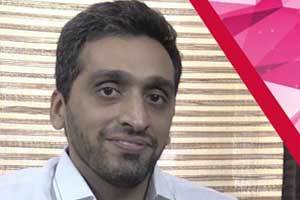 Deepak Tokas
Deepak Tokas
Development Associate, SAFE WATER NETWORK
“It’s been 2 years that we have been working with Oracle and we are very grateful for the grant that we received last year; with that grant we have provided more than 20,500 people access to safe and affordable drinking water. Earlier there was no clean source of drinking water but this year we are installing more such stations and expanding the drive. We are looking forward to continuing this association and take it forward with more such projects.
By participating in this workshop we came to understand the statutory and legal compliances that need to be completed whenever we are reporting to CAF or Oracle. So we got to know the reporting method through this session and also served as a good networking platform to get to know our fellow NGOs and institutions that are working with Oracle.”
 Amitav Nath
Amitav Nath
State Head – QUEST ALLIANCE
“As a part of the larger QUEST agenda, we are working in Bihar under the education program called Anandshala, which is a flagship program of QUEST. In this we are creating a conducive environment for the students and the teachers & educators where they can interact in a very free manner. After the implementation of the program, the students are coming to school very regularly and the teachers also feel very empowered enough to create that lively environment for the students. So this is the larger idea of the program that we are working for.
So we work at 2 level – the system and the school level. At the system level, we try to create an empowered learning environment and at the school level, the students execute that kind of a thinking that they receive though the program. Oracle supported this program in a big way and this is the second year that we have been connected. While designing this program in a much more conducive manner, we try to ensure that technology plays a very important role so that it can create an opportunity for teachers to interact with the content available outside and use it in the classroom environment.
Sometimes when you are working in a program you happen to work in silos. But this opportunity is really great where we come together to work as a team and get the opportunity to interact with others. Also as part of the learning there are systems and processes that needs to be followed. While working in the field you get disassociated with these processes. So workshops like these are a good learning exercise where you learn how an organization can excel in their work or whatever work they are doing in the field. From a statutory point of view you are told how you should share your work in the social media and your impact is much more visible to the larger audience.”
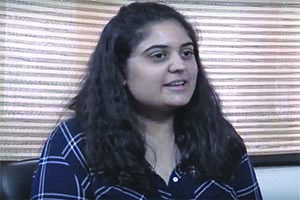 Karishma Sawhney
Karishma Sawhney
Manager – Corporate Partnerships, Conservation Alliances, WWF-INDIA
“With Oracle this is the fifth year of partnership and they have been helping us on tiger conservation work. Currently we are working in Assam and the idea is to work with multiple stakeholders there – like the forest dept., the community everyone involved needs to understand tiger conservation and how can they be a part of it.
For a person who is implementing the project, it is always important to understand the importance of being compliant with CSR and ensuring that they complete their processes. One needs to do regular monitoring and though we have processes in place for that, we can still do that on a monthly or a quarterly basis so that we ensure that we are on track for what exactly we have planned for the project.”


